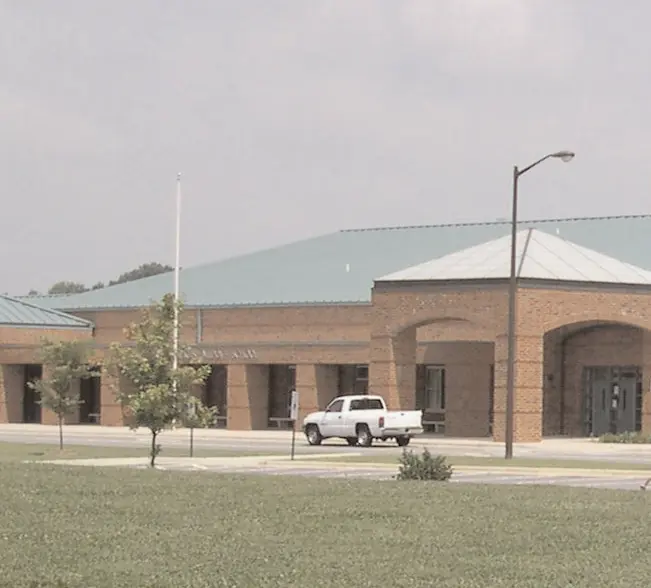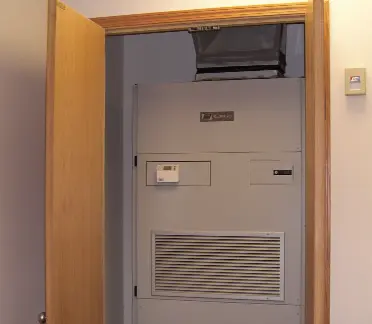SMART ENGINEERING. TRUSTED PROTECTION. RUGGED RELIABILITY.
BARD MANUFACTURING. THE NAME YOU CAN TRUST.
First and foremost, we’re recognized for designing, manufacturing and servicing high-quality products that you can trust to deliver performance, innovative technology and reliability.
Wilkes County Schools Wilkes County, North Carolina
Creating Opportunities for a New Generation
In the spring of 1999, Wilkes County, North Carolina had a difficult and challenging problem to contend with. With an ever increasing student population the school system faced the daunting task of building four new middle schools to improve its county wide school facilities.
Committed to excellence in teaching and to the belief that all students can learn, Wilkes County Schools strive for student success through a partnership of school, home and community.
Building on funds already allocated by the State Board of Education, Wilkes County Schools received approval for up to $24 million in additional funding from the County Commissioners. Because of the needs of the growing middle school student population county wide, it was decided that one school would be built in each of Wilkes County’s four school districts – Central, West, North and East.
But the challenges didn’t end with the County’s approval to build. Staying on budget would be an even greater challenge, given all of the amenities, and opportunities for greater learning that the school system wanted to provide for its students.

Bard also helped Wilkes County Schools save $3.5 million on their overall construction costs.
Aware of the impacting impression a new school has on individual students, Wilkes County remained determined to build its schools so they were aesthetically pleasing, both inside and out, and comfortable throughout every season.
That’s when Wilkes County Schools turned to the heating and cooling expertise and experience of the Bard Manufacturing Company.
Why Bard?
Thirty years ago, Bard began solving the comfort needs of schools across the country. Providing wall mounted heating and cooling equipment, Bard’s products offer a combination of quiet operation, patented ventilation packages, unsurpassed quality and dependability that make them the #1 choice by many school officials.
With three state-of-art manufacturing facilities and a global distribution network, Bard’s commitment to quality and product innovation begins with its commitment to research and development. With features like self-diagnostics and self programming energy monitors, Bard delivers products that provide tangible solutions for today’s modern school facilities.
Bard’s Contribution
Wilkes County Schools were already familiar with Bard Manufacturing and its products, having successfully installed and operated Bard’s previous generation of wall-mounted units nearly 15 years ago in its other school facilities.
“My earlier experience with Bard convinced us to use Bard for our new schools.”
PHIL COUCH Maintenance Director and Assistant Superintendent

“What we liked best overall about the Bard units was having individual control over the environments in each of our classrooms,” said Phil Couch, Maintenance Director and Assistant Superintendent for Wilkes County Schools.
"When Wilkes County first suggested Bard units for the design, we were skeptical – we didn’t know a lot about Bard and we were more comfortable using the traditional four-pipe system,” said Frank Williams, Partner, Pinnacle Architecture. “However, now that we’ve seen how Bard units work, we’re comfortable recommending them wherever the incremental design makes sense. Teachers love the control, and we like the simplicity of installation!”
Bard first developed its incremental wall-mounted cooling units in 1963. Since that time, Bard has made many leading advances and enhancements to its units, making them ideal for new schools and classroom renovations.
Aware of Wilkes County Schools’ desire to also make their new facilities aesthetically pleasing, as well as energy efficient and comfortable to learn in, Bard recommended its QTEC self-contained cooling unit.

“The Bard system has contributed significant savings on our total utility costs. We’re now paying approximately seven cents a month per square foot to heat, cool, light and power our schools.”
PHIL COUCH
Wilkes County Schools’ Results
Wilkes County opened its four new schools in time for the 2002 fall semester and they were able to do it on budget, thanks to Bard.
“Bard’s experience working with school systems around the country helped us design, engineer and install the best system we could have hoped for,” said Couch. “Not only do the units operate quietly, they’re energy efficient. They also save us money on our maintenance costs because we can work on them ourselves with our own in-house maintenance staff.”
And because Bard QTEC units take up less space and are less costly to install over traditional boiler/chiller systems, Bard also helped save Wilkes County Schools $3.5 million on their overall construction costs.
Wilkes County Schools then used these savings to fund four computers in each classroom, and three computer labs for each school.
“Working together with Pinnacle Architecture, Bard not only helped us create a comfortable environment for our students to learn in, they enabled us to purchase, through savings, additional technology equipment.” said Couch.

Frank Williams - Pinnacle Architecture
QTEC – The Quiet “Hidden” Technology
The QTEC unit is designed to be installed inside the classroom – fully engineered to be quiet, comfortable and aesthetically pleasing. QTEC units are designed and tested to operate at 20% above federal standards with easy installation features that make servicing fast and simple. Bard’s QTEC units can provide the following features:
❏ A one-piece factory unit with individual room climate control
❏ Design for fast installation and easy servicing
❏ Sound deadening insulation
❏ Simple utility hookups
❏ Integrated energy recovery ventilator
❏ Controlled dehumidification
“Our school system recognizes the importance of teaching basic skills. However, we also know we must address the needs of students who will be effective citizens in the twenty-first century.” added Couch. “By taking the best practices of the past and combining them with today’s exciting new discoveries, we believe we will prepare a generation of students ready to face the challenges of the new millennium.”